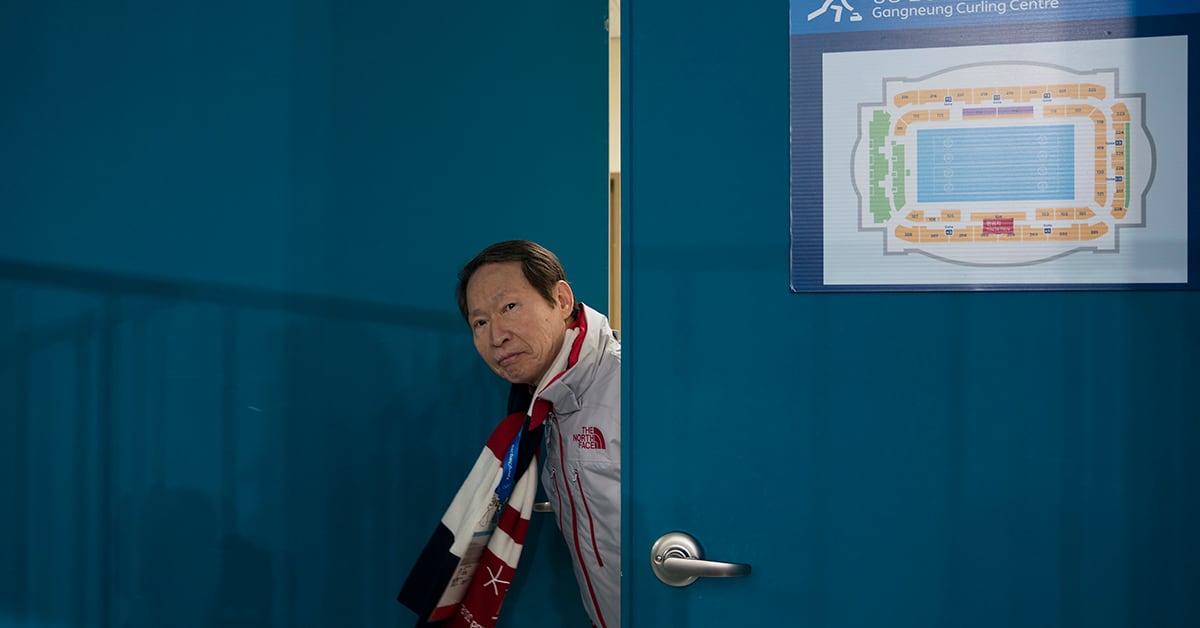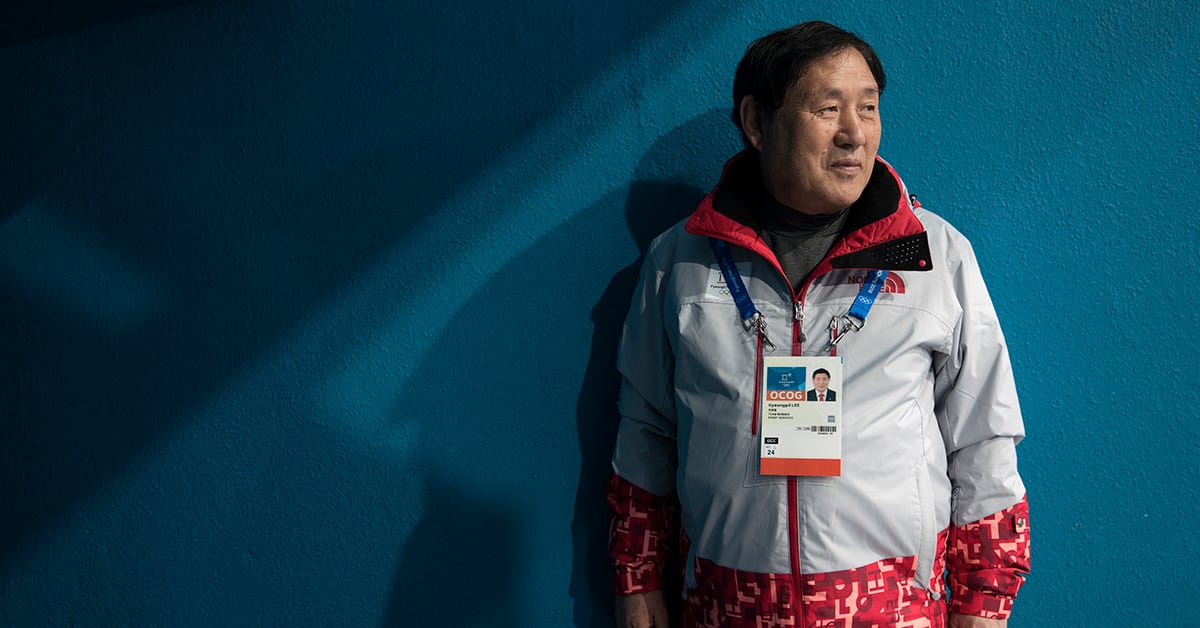GANGNEUNG, South Korea — Their nicknames, bestowed upon them long ago: “Kimchi 1” and “Kimchi 5,” babies born aboard a ship that was helping them flee a war and a regime that, thanks to their rescuers, they’d never have to face.
Sohn Yang Young says he owes his life to the U.S. military. So does his friend Lee Gyeong Pil. They were among five babies born on an American ship that ferried 14,000 Korean refugees, including their parents, from North Korea in one of the world’s largest humanitarian evacuation operations ever.
U.S. sailors from a ship called the SS Meredith Victory named the babies Kimchi 1 through Kimchi 5, nicknames that have become a symbol of the South Korean-U.S military alliance.

They are 67 now, all of them, and the whereabouts of three are not known. But the final two — Sohn is Kimchi 1 and Lee Kimchi 5 — are making their way around the Pyeongchang Olympics, promoting peace and reminding younger generations of South Koreans of their Korean War history.
On Friday, they were in Gangneung’s curling center, where South Korea’s women’s squad made a storybook run to the finals. The two men were volunteering for the Olympics with their wives, checking spectators’ tickets and guiding them to the right gates.
RELATED

“I’m the fruits of the South Korea-U.S. alliance,” Sohn said. “The U.S. military is the savior of our lives and they saved my parents and other refuges. I always feel grateful to the U.S. military.”
Both Sohn and Lee say they feel comfortable being called Kimchi — happy, even. During a joint interview, they often called each other by those monikers and said they were “Kimchi brothers.” Lee’s business card, in fact, shows “Kimchi 5″ written alongside his name both in Korean and English.
“I didn’t become Kimchi 1 because I wanted it. It was like my destiny,” said Sohn, who runs a steel products trading company.
Their parents were among tens of thousands of civilians who gathered at North Korea’s northeastern Hungnam port in December 1950, hoping to board one of about 190 U.S. vessels originally mobilized to evacuate U.S. troops retreating from advancing Chinese and North Korean troops.
Those civilians were mostly North Korean residents who wanted to flee from the North’s harsh systems, such as big landowners, wealthy businessmen who feared political purges or others who sympathized with South Korea or sheltered southern soldiers.

The U.S. military eventually decided to ship those North Korean refugees to safety despite worries that the crowd might include North Korean soldiers disguised as civilians.
The 10,000-ton SS Meredith Victory was one of the last ships to leave the Hungnam port on Dec. 23, 1950. It discarded military supplies and other cargo to take as many refugees as possible.
The ship wasn’t armed, didn’t have enough food and water and had to navigate mine-infested waters. But after its three-day voyage to South Korea’s southern Geoje Island, there were no fatalities or serious injuries. It became the “Ship of the Miracles.”
In fact, the number of the ship’s passengers increased slightly because of the on-board births of Sohn, Lee and three other babies — all presumably on Christmas Day. Both Sohn and Lee say the birthdays on their residence cards are December 25, 1950.
Lee’s mother had massive labor pains and couldn’t disembark, so she gave birth to him in the hold. A neighbor who had also fled the North cut her umbilical cord with her teeth, according to Lee’s wife, Ock Junghee.
Among the refugees were the parents of current South Korean President Moon Jae-in, who described the ship’s evacuation in Washington last year as a “voyage of freedom and human rights.”
“It was indeed a miracle of Christmas. And two years later, in Geoje, where the SS Meredith Victory had arrived, I was born,” Moon said. “And, today, the son of the refugees that the American soldiers rescued sixty-some years ago became the President of the Republic of Korea and is here today meeting with you.”
Lee, a veterinarian in Geoje, joined Moon’s campaign team to support his election as president in May last year.
The Guinness Book of World Records later listed the ship’s evacuation as the largest “from land by a single ship,” and the ship’s crew were awarded citations from both the South Korean and U.S. governments. In what is known here as the “Hungnam Evacuation,” the SS Meredith Victory and other U.S. ships evacuated about 100,000 North Korean refugees.
The parents of both Sohn and Lee died long ago, but they left wills linked to their longing for their hometowns and relatives there.
Lee’s parents asked him to move and bury their bones in their North Korean hometown once the Koreas are unified. Sohn’s father asked him to find his elder brother and sister, left behind in the North because he didn’t know his evacuation would be a permanent farewell.
“My mother always cried because of her children left in the North,” Sohn said, his eyes filling with tears. “My father sometimes went out to smoke cigarettes and I saw him sobbing and wiping away tears with his handkerchief so many times.”
He added: “I absolutely want to meet my brother and sister whom I have never seen. That’s my father’s dying wish.”





